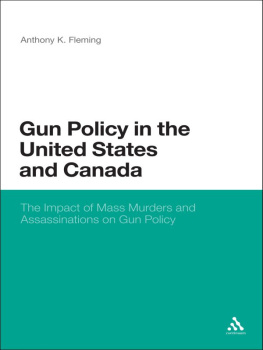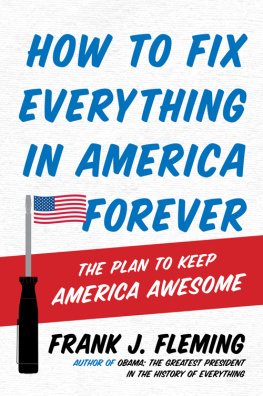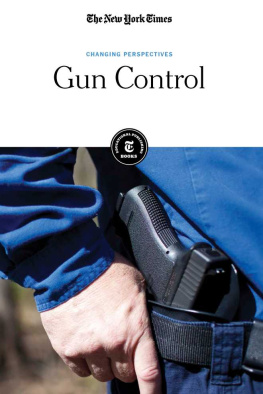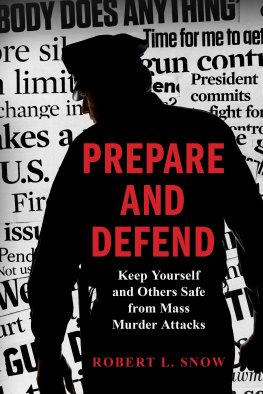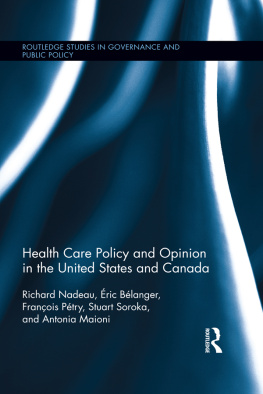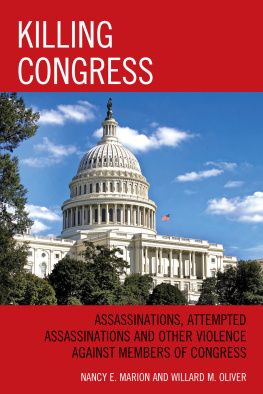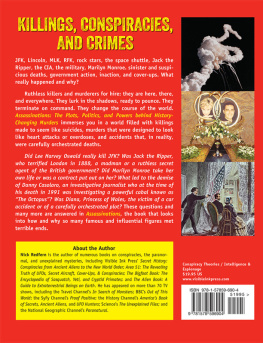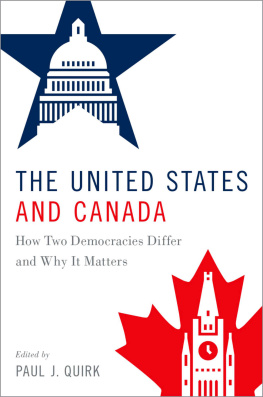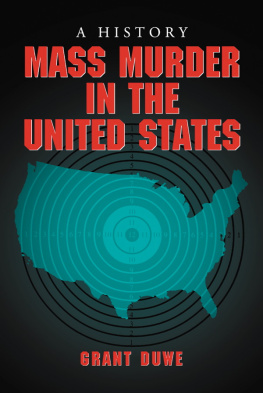This book discusses the importance of firearms-related focusing events in two states: the United States and Canada. It is my contention that focusing events can lead to items being placed on the agenda; however, interest group activity can either impede or promote the policy outcomes due to the event.
I argue that in the United States firearms-related focusing events often lead to new policy being placed on the agenda when there is a Democratic government; however, due to the diffuse nature of the American political system and the presence of the NRA (a staunchly status quo group) policy rarely, if ever, goes to the formulation stage. Furthermore, when there is a Republican government in power, focusing events lead to fewer policy alternatives being placed on the agenda, much less advancing to the formulation stage.
Alternatively, in Canada, firearms-related focusing events will lead to an item being placed on the agenda when there is a left-of-center government. Due to public outcry (from the masses and more importantly interest groups), and motivated policy entrepreneurs within government; policy makers will react quickly and decisively in creating new firearms legislation. There are two reasons for this: centralized power of the Parliament, and the minimization of status quo interest group influence due to the blocking of alternative venues in the short term after a focusing event. This minimization of influence for these groups means that focusing events not only lead to new firearm legislation being placed on the agenda, but also allows other actors inside of government, in particular left-of-center policy entrepreneurs, to have significant power in policy making in the short term. When there is a right-of-center government, firearms-related focusing events will lead to the policy being placed on the agenda, but rather than having major overhauls to the subsystem, changes will be incremental in nature, if they occur at all.
An Introduction to Political Culture
and Gun Control Policy in the
United States and Canada
Introduction
In 2007 at Virginia Tech, a lone gun man executed arguably the worst mass murder in modern US history. Yet, even after such a tragedy, new restrictive federal gun control policy was not created. In 1989, a similar event took place in Canada; a lone gun man perpetrated what is known as the Montreal Massacre. Unlike in the United States, Canada took action in less than two years. New comprehensive gun control policy was created and eventually led to the creation of the Gun Registry.
These two very similar events had drastically different outcomes. In the United States very little happened at the federal level, in Canada there were broad and sweeping changes made to gun control legislation at the federal level. It is my contention that the structure of a states government, along with interest group pressures and political parties, play a significant role in dampening or accelerating the effects of a focusing event. Presidential systems, like in the United States, react slowly to events such as the Virginia Tech slayings. They react slowly, in part, because of the diffuse nature of power in presidential systems. Parliamentary systems, especially effectively unicameral ones, are more centralized in power and this enables them to react quickly to focusing events.
Interest group pressures also have significant impact. Dominant status quo interest groups are capable of preventing the passage of new legislation in a presidential system. Yet, in a parliamentary system, interest groups may not be able to react quickly enough to provide the Parliament with alternative ideas to prevent change, or they may be unable to influence government significantly because of lack of access or party discipline.
If a pro-change interest group is the most powerful interest group in a presidential system, change may come, but it will be slow, and will take multiple events to cause change. In a parliamentary system, if a pro-change interest group is the most powerful, change can occur very rapidly. In order to test the theory I study firearms-related focusing events in the United States and Canada.
The US Presidential Institutional Structure vs Canadian Parliamentary Institutional Structure
It is necessary to discuss the basic differences between presidential and parliamentary systems before going into a more in-depth discussion. Presidential systems are generally diffuse. The executive and the legislature are different and coequal entities. This allows for a natural cooling-off period for the creation of legislation after a focusing event.
Parliamentary systems have concentrated power. The executive and the legislature are, in fact, the same branch of government. This allows for policy to be passed rapidly during periods of high emotion; especially when there is a single party majority. This means that the public and interest groups have very little time to try and dissuade the policy makers from a particular course of action (Lijphart 1999, pp. 1021).
In presidential systems, the executive is always elected by the public. Parliamentary systems differ because the executive is chosen by the legislature. This leads to a centralization of power in a single branch of government, the executive (Lijphart 1999, pp. 1021). In Canada, power is centralized in the House of Commons, with the Senate taking a less substantial role in policy making. For the party in power to be able to wield power in a way to ensure its policies are implemented, parties need a working majority of the seats in the lower house, and the party must have strict party cohesion. This is very different from the United States where legislators freelance and are themselves their own enterprise (Salisbury and Shepsle 1981).
Of particular importance, parties must be able to have the majority of the seats without forming a coalition. Lijphart argues that when a party does not hold the majority of the seats and must enter into a coalition, this weakens the hold of a governments policy-making abilities. He goes on to suggest that in states where you have multiple powerful parties that are capable of preventing one party from receiving 50% of the legislative vote, you will find that the ability of parties to control policy making at their discretion is significantly reduced. However, when there is a disciplined majority party system in a Parliament, Lijphart finds that the efficiency and the power of the dominant party to act and disregard the minority allows for there to be an elective dictatorship (Lijphart 1999, pp. 1213). The elective dictatorship reference suggests that policy making can be quick and efficient in parliamentary states.
In presidential systems the minority groups (primarily interest groups) can still play a role in the creation of policy. There are many access points for the formulation of policy. Minority groups are able to block or limit the scope of many pieces of legislation. In parliamentary systems, there are few access points and only one body that can create legislation, the majority party or coalition in the House of Commons. This means that minority groups have a nearly insurmountable mountain to climb when trying to influence policy making. Lijphart even suggests that minority groups are completely excluded from policy making and their sole role is to be that of the opposition (Lijphart 1999, p. 11). If all minority groups are marginalized (minority parties and opposing interest groups), then the ability of policy to go from the agenda-setting stage to the formulation stage should be relatively unimpeded by these groups when compared to presidential states.


